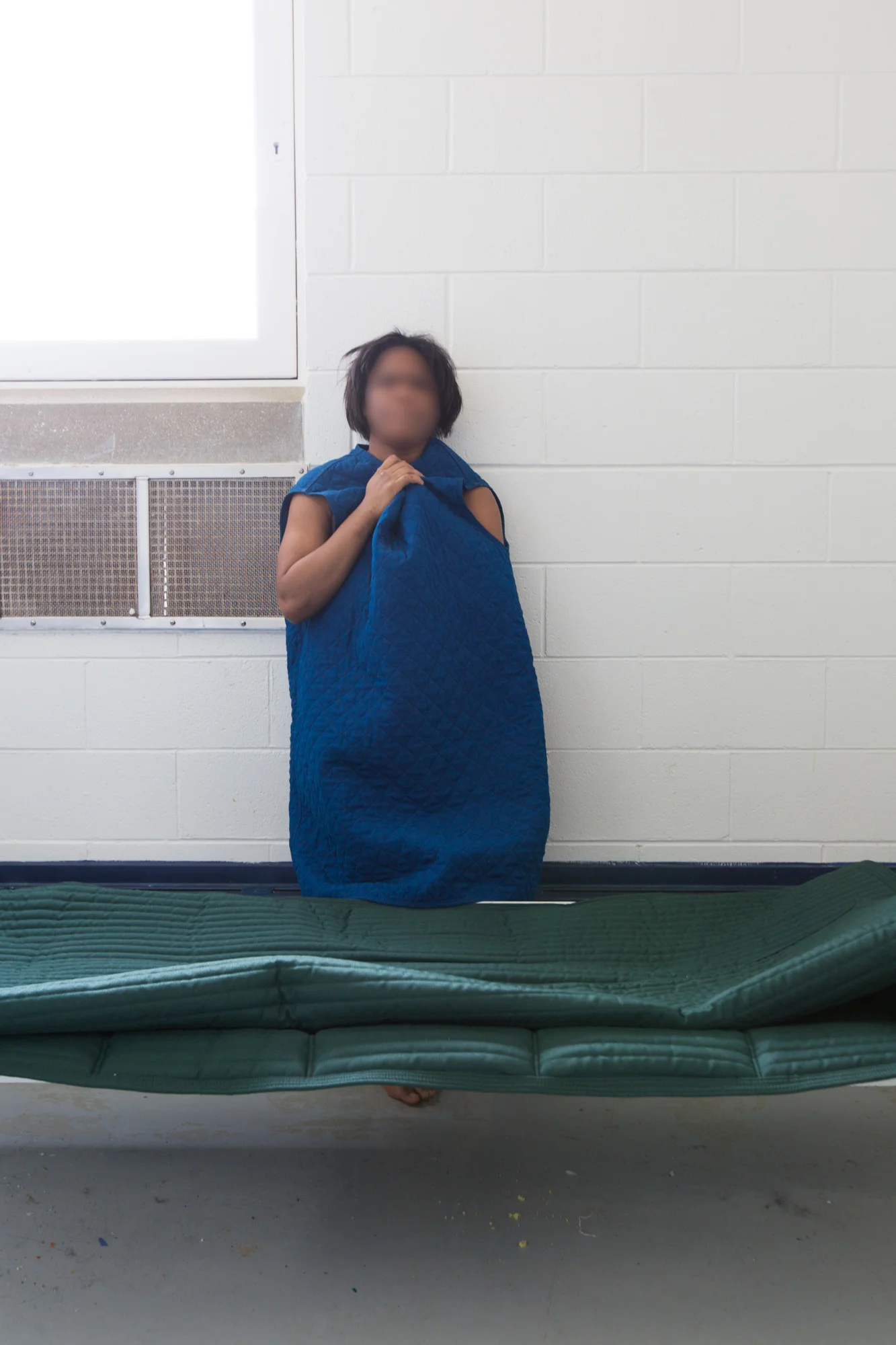I’m dual. No one visits. I was in placement. Then I was in a facility up north for two weeks. I’ve been here five days. There is A/C in the day room but not in the cells. I live far from here with my grandfather, mom, tío, and younger sister. Me and my mom got into a physical altercation over me smoking some weed. She roughed me up so I went AWOL and stayed with my friend just around the block. My mom reported me missing. Then I went to school after being truant for three days with a busted lip, black eye, and a broken nose. When they saw how beat up I was, they took me and my little sister away and put us in a foster home—this lady with two kids—a son and a granddaughter. My dad was incarcerated for 14 years. I was having attitude with my foster mom so DCFS put me living with my dad when he got out of prison. I was living with him and my half sister for four months. Then he raped me. My mom didn’t believe me. He wasn’t held behind bars—he was just walking around. Then when they found out, they re-incarcerated him for coke and being a pedophile—for having sex with a 13 year old. This was my biological dad. No one believed me and I ran away to the valley and had to find a police station by myself to report him. I was in junior high. I went to a foster home. My little sister was able to go back home to my mom, but I have an order that I have to be separated from my mom for six months. I had attitude so my foster mom gave my social worker seven days notice to evict me and move me.
They found me a place at a different facility. I was there two months and I AWOLed. I was supposed to do six months there, but part of their program is family counseling and I was too far away from my grandfather to meet with my mom as part of counseling. My social worker knew I was on the run and she called my mom. My mom knew I was trying to get home and when I got home she snitched me out. I was standing on a corner in my city at about 10 PM and a police officer asked what I was doing out after curfew. They took me to DCFS headquarters and had me stay there overnight because they didn’t have a place for me. Then they found me a group home on a Thursday and I was supposed to stay there for a month. I got in a fight with another girl and accidentally socked a security guard. They put me in a place that used to be a school for girls. They gave me another chance there. I was there for nine months and then AWOLed—for a guy. Yeah, it’s always a guy. I thought he was the one.
I was on drugs a lot: doing weed, PCP, Angel Dust, Meth, Uppers, Downers. There are no NA or AA meetings here. In order to help me they told me I had to admit my addiction to myself and I wasn’t willing to do that. At that point my mom didn’t want me. I was living in an abandoned house for three weeks. I would go in and out of this boarded up house through a ‘doggie door.’ Or I would sleep in a van.
My mom moved out of the house so I have been living with my grandfather. I’m here as a runaway. My first case is closed. My grandpa always gave me what I wanted and what I needed but not my mom and certainly not my dad. I’m in 10th grade but I have junior credits. I’m smart when I’m sober. I’m catching up on schoolwork a lot. I have two kids. The first I have from my dad when I was 14. The first thing he did when he got out of prison was to rape me and get me pregnant. I didn’t show until I was eight months. The baby was tiny, so I didn’t know I was pregnant. I had irregular period all the time anyway. I was still doing a lot of drugs, heroine and coke and crystal meth. The baby was born three pounds eight ounces.
When I came here a month ago I was only 50 pounds. I’m 4’8”. My second baby was with my boyfriend. He’s 18. I was off drugs and by then I was only an alcoholic. I don’t believe in setting goals, but I would like to stay sober. I’ll get off probation as soon as possible. I want to build a relationship with my mother. My boyfriend has two other kids, both are from another girlfriend. I asked my mom for help, but she said I ‘should learn the hard way.’ My mom was abused by my uncle when she was a kid and she was bullied back in her high school days. I think she is 53 now. I’m 16.
I get interviewed on Friday. I may go to a new placement.
—B.E., age 16





















